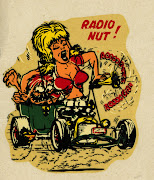 |
| French film poster for the 1966 film version of Batman. |
Zowie! Welcome to this week’s Mid-Week Movie Break. It’s certainly been a crazy several days here in the city of Saint Paul. I’m not going to belabor the point and utilize this ongoing assignment platform as a social soapbox; I’m just going to say that Saturday afternoon, when I needed a breather from the world around me, I sat down with this week’s movie pick. A sort cinematic comfort food, if you will.
 |
| From L to R: Catwoman (Lee Meriwhether), The Riddler (Frank Gorshin), The Penguin (Burgess Meredith) and The Joker (Cesar Romero). |
Batman has been done to death. Literally and figuratively. As far as I’m concerned, Adam West is still the quintessential version of the caped crusader, because the 1966 series has all the bright, four-color pop style of the comic books of that era, and has, dare I say it, something else that the comics tried to imbue to their readers once upon a time, and that is joy.
Batman series producer William Dozier had initially pitched the idea of a Batman movie to 20th Century Fox as a kickstarter for the planned television series. The idea was to have the film released in theaters while the first season of the show was in production, to both establish with the audience the world the characters inhabited, and drum up promotion for the weekly series. 20th Century Fox nixed the idea, realizing that they would have to eat the entire cost of the film if it flopped, and deal with the lackluster viewership that could result, leading to another financial loss if the show failed. Their concerns were ultimately unfounded though, as Batmania exploded like a confetti bomb on the planet in 1966, when the show was used as a mid-season replacement, and pop culture was never the same.
After the success of the first season of the Batman television series, Dozier got the go-ahead to make the feature length production. It was rushed into production after the first season wrapped, primarily to be used as a marketing tool to garner interest in the television show in foreign markets. Four of the most popular villains from the series reprised their adversarial roles for the feature, this time teaming up to tackle the dynamic duo. Frank Gorshin, Cesar Romero and Burgess Meredith returned as The Riddler, The Joker and The Penguin, respectively. First season Catwoman actress Julie Newmar was unable to appear as she was shooting the western Mackenna’s Gold with Gregory Peck and Omar Sharif (and Burgess Meredith, believe it or not), so Lee Meriwether stepped in to fill the skintight black catsuit.
The plot revolves around the four super-criminals hijacking a ship containing Commodore Schmidlapp (Reginald Denny) and his invention, an instant dehydrator. The four criminals, working as a group dubbed The United Underworld, attempt to kidnap millionaire Bruce Wayne, via setting him up to fall for Catwoman in the guise of Russian reporter Miss Kitka, to lure Batman to his doom. When this fails and Bruce Wayne capably escapes, the United Underworld set their sites on dehydrating the United World Organization. The dynamic duo chase the super-villains back to their submarine made up to look like a giant penguin, and duke it out around many onomatopoeia title cards before ultimately restoring the dehydrated world leaders and restoring peace to the world.
I’ve read conflicting reports about the success of the film regarding its success at the box office. Commentary tracks and interviews given by the actors seem to paint it as a success, while the figures seem to marginalize it as a moderate success. Supposedly the film budget was around $3,200,000, and recouped all of it, with around $3,900,000 is sales. Whether the success of Batman as a feature was marred by a skeptical public who’d gone to see the The Man From U.N.C.L.E. features, which were essentially two-parter television episodes padded out with some alternate footage and pushed into theaters, or whether Batmania had started to subside by the time the film rolled out July 30th, 1966, about two-and-a-half months after the last two-parter of season one, “Fine Finny Friends” and “Batman Makes The Scene” aired May 4th and 5th respectively, I couldn't say.
Watch the trailer here
Realistically we know that there never truly was a "simpler time," no halcyon era where everyone was happy and everything was perfect, but Batman denotes a notion of a time when perhaps people didn't take themselves as seriously, Maybe that's just nostalgia talking. Regardless, if you haven't seen Batman, I highly recommend you do. It's the right kind of pop culture preposterousness, minus the self-importance, that we could all use a heady dose of right now.

















3 Comments:
Fave.
I totally agree with you that Batman denotes the concept of time. Thanks!
In the 1970s, the first indoor mall in Wichita, KS opened its doors (aptly named The Wichita Mall). It had a movie theatre that showed a kiddie movie every Wednesday morning at 10AM during the summer. This fucker packed the house once every summer for at least three years in a row! That audience is probably the 50-somethings dropping major bucks on some sort of Avengers:Endgame collecter's Blu-Ray set.
Post a Comment